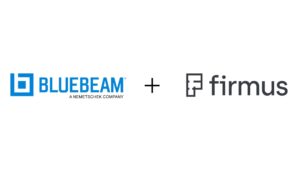FE Colleges Use Technology to Digitally Skill More Learners

The Covid pandemic was a digital moment of truth for universities and colleges of Further Education. The vast majority coped brilliantly and adapted with a lot of energy and goodwill. This whitepaper looks at colleges who tackled the of challenges of online learning and moved beyond improvisation to innovation and best practice.
Most learners and educators, however, would agree that simply moving the traditional classroom experience, delivered through Zoom, is a poor relation of the real thing. Our focus lies beyond the Zoom classroom, on colleges who have used technology in innovative ways to raise engagement and increase reach.
The first of the reports (1) that came out in June 2021 was prepared by the Department for Education and addresses the future of online and blended delivery in Further Education. It is a literature review which admits frankly that there is little research on e-learning in an FE context.
The authors refer to a small-scale qualitative review (2) of the student experience during lockdown which found “variability in the quality of online teaching ranging from engaging ‘live’ online lessons to teachers simply reading from slides”. The quality of teaching in Further Education and elsewhere has always been variable, but online does pose specific challenges for teachers (and students) lacking confidence in navigating the virtual classroom. Also, content created for face-to-face teaching is not necessarily what is most effective in an online or blended context.
Mind Shift
Technology-enabled teaching and learning at scale (3) discusses the shift to digital for universities – another example of how the bulk of thought leadership in this space is preoccupied with Higher Education. This, in our view, suggests the paper is still “tethered” in its outlook because online learning will lead, over time, to the further blurring between Further Education and the universities.
Online learning ought to be an opportunity for universities and colleges to re-think the syllabus model of the three-year qualification, at least for some courses and disciplines. Is this happening? The report includes a stirring and insightful quote from a vice-chancellor of a UK university; we cite part of it here: “All universities have fetishised, to some extent, the structural norms of a university: you have lectures, you have classes, you have exams, you need a place linked to a name and an identity. I’m interested in what blended learning will do to that set of assumptions.”
Evidence Based Best Practice
While there is no alchemy that changes great face-to- face teaching into a powerful virtual course, a number of Further Education colleges have pivoted to a delivery format where platform, technology and pedagogy are one. Their experiences are detailed in a new whitepaper, Levelling up Access to Further Education: Using Technology to Skill more Digital Talent.
The whitepaper charts the experiences of Coleg y Cymoedd, City of Bristol College, South Devon College and Newcastle College in adopting a technology, platform and curriculum solution to help them skill more learners in web application development to meet the skills needs in their region.
Each college overcame particular challenges relating to physical resources, subject expertise and increasing frequency of course delivery to meet learner demand. This white paper explores how the technology and business model of the Gateway Qualifications Level 5 Diploma in Web Application Development, delivered on the Code Institute platform, enabled Further Education colleges to transform course delivery in the same way that fintech transformed banking, and streaming revolutionised the media and music industries.
Effective Use of Technology
“We’re focussed on delivering skills for jobs using a combination of learning at scale technology and qualifications. For colleges, the real benefit of the learning platform comes from the flexibility it affords in terms of how programmes are delivered. But, equally, for learners, the increased flexibility makes it easier to mix upskilling into their already busy work and personal schedules.” explains Lee Lindsay, UK Education Partner Manager, Code Institute.
The driving force behind the partnership with an edtech provider vary but all concur that the online delivery and the flexibility to run multiple start dates has been central benefits in onboarding increasing learner numbers. In Wales, College y Cymoed’s Business Development Manager, Kathryn Bishop was central to the decision “Some of these courses are taught by us but for Level 5 software development we lacked the required in-house expertise.”
While in City of Bristol, Pasquale Fasulo, Head of Department for Digital and Creative was drawn initially to the rich curriculum and support system before realising the potential to expand the delivery significantly, “It’s evolved to the point where from January 2022 we’re going to do rolled monthly starts. We will continue to offer support but the approach will be more flexible. We will ring-fence and protect certain times for learners to drop in and book appointments with us and have progress reviews.”
Employment Focused
This ability to flex around the colleges expertise and resources has been an eye opener for colleges. However, delivering the skills that learners need to get jobs does and must remain the central purpose of vocational and technical education. And while Conrad Saunders, Programme Coordinator for Digital at South Devon College understood the benefit of rolling enrolments given the likely demand for the course in the region, he really leaned into the end result. “We’ve seen for a long time that there are a lot of learners going off and doing their degrees but afterwards there’s nothing for them. They don’t find employment,” Saunders says. “Often they have media-type degrees in digital production that just aren’t right for today’s jobs market.
(1) Online and blended delivery in Further Education. A literature review into pedagogy, including digital forms of assessment, John Hamer and Dr Jenny Smith
(2) Ofsted (2020). Online education in further education and skills: learning about what works
(3) Technology-enabled teaching and learning at scale. Jisc and Emerge Education, June 2021
(4) Levelling up Access to Further Education: Using Technology to Skill More Digital Talent, February 2022






